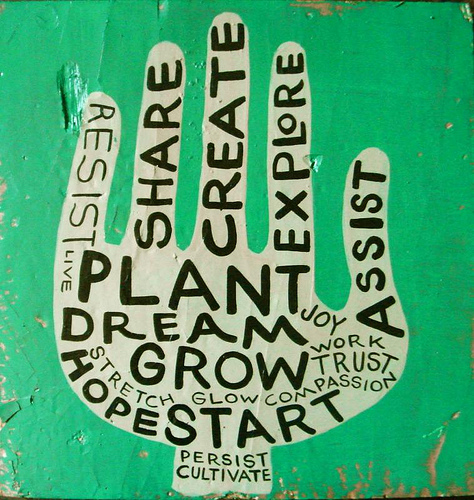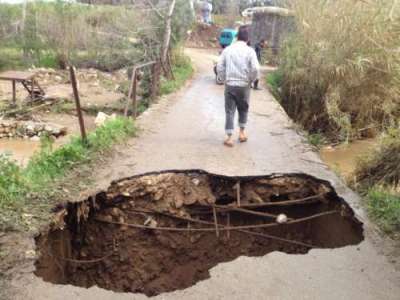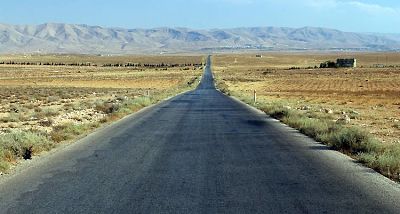As Craig Larkin already noticed in one of his studies, in human events the tension between what is said and what is known often emerges (Larkin, 2010: 630). In order to write my PhD dissertation, between December 2011 and November 2013 I carried out field research in the Akkar region (North Lebanon) on the social response to the presence of the humanitarian apparatus providing aid to Syrian refugees. At that time, I came to realise that some of my interlocutors’ accounts – those of refugees, local residents and humanitarian organisations – were factually untrue, thus inducing me to invoke relativism to deal with some of them.
The first time I made this discovery, I weirdly felt “cheated” by the interlocutor, feeling as though it were a moral betrayal. However, I now realise I wrongly presupposed that they should have trusted me aprioristically, when from their perspective, in the paranoid environment of humanitarian assistance operators, chronically poor local inhabitants and frustrated newcomers, where everyone was guarding themselves against possible situational miscalculations and unpredictable threats, their responses were understandable. Allen Feldman (1995: 231) also reshaped my view with his insight that events are culturally distorted, and rumour can become a “narratological form” in which there is still a cognitive and emotional investment. The social production of rumour (and falsehood in my case) is in fact the “social production of collective experience in the absence of wide-scale social credibility”.
I would like to specify that the relativistic approach I developed throughout my research and the feeling of gathering real data as much as unreal data – after having verified the content of some information, when feasible – suggested the idea that the “reality” of the field site is nothing that can actually be known, but just interpreted (Strauss and Corbin, 1990: 22). Reality, therefore, just exists as a series of mental constructions generated and negotiated with the interlocutors, not as a noumenic – in the kantian sense of the term – state of affairs, which exists per se, regardless of its empirical verifiability and phenomenological relation with what is other to itself.
Furthermore, as Hastrup points out (2003), anthropologists can never actually prove how right their generalisations are with reference to evidence, as the latter is not separate from the anthropologist’s interpretation, which is, in turn, a product of individual methodology and theorisation. I can examine, nonetheless, my own point of view by considering it a product of social conditions, which makes my ethnography a sort of social achievement. Pierre Bourdieu (2003: 282) referred to this social negotiation in terms of “participant objectivation”, where not the lived experience of the knowing subject is explored; rather, it is the social conditions of possibility of that experience.

As a result, rightness ends up being personal awareness about our own epistemological constructions rather than an ontological certainty. The only certainty comes from encountering situations and stories and recognising patterned responses to events.
Collaborative ethnography, in the sense of socially negotiating our ethnographic product [1] with the participants (Touraine, 1981), has its limits: we cannot always expect participants to agree with the chosen topic or fully understand it and contribute to it.
By the abovementioned constructivist approach to writing, it is therefore possible to find a personal way of writing a collaborative ethnography, which makes the researchers more confident in representing and analysing frames and trying to objectify their work. These considerations help to understand how the reality-falsehood binary in the field involves both the researcher and the interlocutor to the same extent.
Even though towards the end of my fieldwork I finally realised that the attitudes and the reasons behind the falsehood or partial truth of some statements were far more important than the mere ascertainment of facts, it has still been paramount to recognise that my interlocutors were contributing in any case to the creation of de facto knowledge, whatever its truth. Even though I was aware of the fact that it was not simply people’s attitudes and feelings that could be explored by me, my emotional instinct to ascertain the information produced survived, and greatly continued to vex me throughout other interviews.
Even when the information given by the interlocutors was eventually found not to adhere to reality, I started experiencing falsehood as part of their conceptualisation. In this regard, Glaser (1998) looked at grounded theory as an explanation of people’s behaviour, of which they might not be aware conceptually: “it is just what they do! Grounded theory is not their voice: it is a generated abstraction from their doings and their meanings that are taken as data for the conceptual generation” (Glaser, 2002: 25). In my research I find myself discarding Glaser’s perspective, as my interlocutors fully proved to engage with their possibility to conceptualise – and not just physically live in – the world they were surrounded by. It is an illusion, from my perspective, to think that it is our theories and not people’s accounts that uncover the patterns of which the participants are allegedly not aware or that they do not grasp, even on a general epistemological level [2].
 People who, in many cases, had dropped out of school many years back, as well as totally illiterate people, showed extreme acuteness in their ability to put forward notions and ideas which enabled them to grasp the reality they were living in. This led me to reject the assumption that they constituted mere “ordinary actors in the everyday world” (Glaser, 1998), or, in any case, not indiscriminately. Hence, whereas Glaser invalidates, as a data-driven research theoriser, the possibility that participants can also be conceptualisers (2002), I contend that my interlocutors, most of the time, had a clear conceptual perception of the phenomena they were going through, even if sometimes they were not able to label them. Such a conviction triggered in me, in the shoes of a “public ethnographer”, the feeling of having to negotiate the knowledge I was expected to produce. The challenge of negotiating my viewpoint with that of the participants is huge, provided that people are not just descriptors, merely conveying their “bare” lives, allegedly free of any interpretations; rather, they are conceptualising actors. The will to disguise the accounts of facts can still be viewed, therefore, under the hermeneutics of field companions as primary epistemic references.
People who, in many cases, had dropped out of school many years back, as well as totally illiterate people, showed extreme acuteness in their ability to put forward notions and ideas which enabled them to grasp the reality they were living in. This led me to reject the assumption that they constituted mere “ordinary actors in the everyday world” (Glaser, 1998), or, in any case, not indiscriminately. Hence, whereas Glaser invalidates, as a data-driven research theoriser, the possibility that participants can also be conceptualisers (2002), I contend that my interlocutors, most of the time, had a clear conceptual perception of the phenomena they were going through, even if sometimes they were not able to label them. Such a conviction triggered in me, in the shoes of a “public ethnographer”, the feeling of having to negotiate the knowledge I was expected to produce. The challenge of negotiating my viewpoint with that of the participants is huge, provided that people are not just descriptors, merely conveying their “bare” lives, allegedly free of any interpretations; rather, they are conceptualising actors. The will to disguise the accounts of facts can still be viewed, therefore, under the hermeneutics of field companions as primary epistemic references.
That said, the fact that people can be properly defined as “virtual owners of their concepts” (Glaser, 2002: 30) does not necessarily make them empowered individuals, in that they may not yet be able to “control” or efficiently express and diffuse their concepts in the public space.
 In order to understand the language of their conceptualisations – most of the time differing from the academic language we are used to – I was looking at their behaviour as a creative pattern of understanding. In fact, behaviour is by itself part of a pattern individuals use in an attempt to fit in (Bourdieu, 1986); and the researcher, at some stage, has only to tackle patterns – even if she/he eventually decides to demolish them – since, at a certain point of the research process, she/he no longer deals with the interlocutors.
In order to understand the language of their conceptualisations – most of the time differing from the academic language we are used to – I was looking at their behaviour as a creative pattern of understanding. In fact, behaviour is by itself part of a pattern individuals use in an attempt to fit in (Bourdieu, 1986); and the researcher, at some stage, has only to tackle patterns – even if she/he eventually decides to demolish them – since, at a certain point of the research process, she/he no longer deals with the interlocutors.
At this point, it is also worth noting that people often felt more comfortable in conveying the cultural stereotypes and imaginaries rather than their individual ones – when the former were evidently present in their culture. In some cases, indeed, the individuals’ ideas did not coincide with their statements, especially when we were talking about politics. To highlight “what people generally think” in Akkar turned out to be, in several cases, the easiest answer for them (Devine and Elliot, 1995). In this sense, the collection of untrue statements was not due to absence of truth in the content of such information, but in the fact that what people were thinking sometimes differed from the general perspective of their entire social group. And, in some cases, they did not highlight the opinion gap between personal and social beliefs [3].
Reality and falsehood, however, can also be read as tools maintaining relative social order within the Akkar region where I was conducting ethnographic research. Indeed, widespread lying, and apparent non-response or non-contestation of such social lying, express people’s disinterest in ascertaining particular kinds of facts, and this allows them, somehow, to keep order in human relations and power balances. In other words, uncontested falsehood seemed to me to assist in avoiding frictions.
Exemplifying reality and falsehood through a case study: neglected citizens in Akkar, North Lebanon
As a tangible example of blurring between reality and falsehood, I will now provide a snapshot from the fieldwork I conducted in North Lebanon for my PhD dissertation, extracted from a morning spent in the region of Akkar in February 2013. The following anecdote also brings out the discursive strategies that common people use when referring to the neglectful Lebanese state. These strategies can be identified on a daily basis in people’s discourses in every part of Lebanon, and they are able to reassert how the empirical falsehoods that people sometimes convey can definitely wrong-foot the researcher. This analysis contributes to demolishing the preconception that the poor – or the aid beneficiaries, as was the case in my PhD research – are the only ones who lie, while the staff of the humanitarian organisations and the municipalities do not.
On a cold morning in Akkar, I got off the bus at al-Bahsa – on the road to the main town Halba – a small village where just six Syrian families were living next to a few local families, at the time of writing. While heading to the tent of my friend Amal, who fled Hama one year ago, I noticed a big hole in the tarmac of the bridge road, due to flooding caused by heavy rain. The damaged bridge connects the municipality of al-Bahsa and the small rural hamlet of Hay al-Amin – home to about eighty inhabitants – with the main road, starting at Tripoli’s harbour and leading to Akkar.
Hisen, locally called Abu Beder, saw me taking a picture of the huge hole. The old man then waved his hand to invite me to have a chat with him. He asked me who I was and he finally decided not to delete my photo. Readily another intervened: “Yes, I know her. A foreigner who comes here every week just for the Syrians….” Abu Beder later explained to me the reason for his concern: “I care about this bridge because I was the one who built it in 2000 after numerous unsuccessful requests for funds to the state. I managed to build it by collecting the money from all villagers, and this was the only way we could cross this river to reach to the main street or go outside of Morleye Mohlem” [4].
Without this bridge, inhabitants of the village of Morleye Mohlem – renamed by Abu Beder Hay al-Amin – had no other way to bring goods [5] to the rest of the municipalities in the area without circumnavigating the surrounding fields. “This morning, as usual, I tried to call the general manager of the public works to repair the hole in the bridge’s tarmac. And, as usual, he did not even answer the phone. I will fix it myself,” Abu Beder told me.
I carefully crossed the damaged bridge to return to the main road. “What has Abu Beder told you?” two locals asked me. After I reported his words, the two reacted with a shrug and a grin, like people who know what will follow: “Don’t believe him, he tells everyone this stuff just to brag around, but they’re all lies. It’s hard to believe, but the bridge was built by the state”. Feeling confused, I walked away from Hay al-Amin, shuddering at the thought of the blurred line that is drawn between reality, falsehood, and the limitations of my cultural interpretation (or maybe that of anyone?) of the episode.
Was it that Abu Beder is just an old lord of the district always keen to enhance his own local reputation and still dreaming of ruling the roost and dominating local truth, a bearer of the well-known rhetoric of the absenteeism of the Lebanese state, in order to heroically emerge as a self-made man? Or, rather, are those two people of Morleye Mohlem denying the agency of the old man because they are fed up with pseudo-tribal greedy lords and therefore ready to betray the truth with the purpose of rejecting any sense of gratitude to Abu Beder, in order withhold recognition of him as the constructor of the bridge and his role in assuming the responsibilities of the Lebanese state, which, since the time of the French mandate (1920-1943), had left this area in an abject situation? [6]

The meaning that I gleaned from this story about the controversial role of the Lebanese state leads me to consider as redundant the thin line between truth and falsehood that initially vexed me, and which seemed to “pollute” all my attempts at field research. The self-critical awareness of one’s own limits as interpreter of an event allows us to deflate ideals about absolute truth and objectivity and their eventual ethnographic necessity.
Notes:
[1] For instance, Alain Touraine’s collaborative ethnography derived from his sociological “intervention” (1981: 171), which consisted in ethnographic advocacy to mobilise resources and raise awareness about the predicament experienced by the ethnographer. By doing so, the “practical consciousness” of the people who fight for a cause emerges more easily. In other words, Touraine’s sociological intervention called for a negotiated interpretation of constructed knowledge with the researched social movement (1981: 181).
[2] Nonetheless, it is worth recalling that even the researcher herself/himself lacks holistic understanding of personal relationships and environments.
[3] Moreover, as has been highlighted, the cognitive stability of these cultural stereotypes does not “derive from impoverished inputs (abstractions) to our cognitive system, but from impoverished inputs constrained by our social environments” (Garcia-Marques et al., 2006: 826).
[4] As the name of the town was pronounced to me, emphasising the accent characteristic of North Lebanon.
[5] A road called Dabbusiyye, very close to the border, was one of the few to be used to transport goods from Lebanon to Syria and vice versa.
[6] The Lebanese state is therefore defined as absent, weak, corrupt or bankrupt whenever its citizens desire to assert their active citizenship, through which individuals find their confidence in everyday life thanks to their own skills and resourcefulness. The state is, however, present, coveted and invented whenever the non-active citizen claims her/his own needs and rebels against the survival of patronage structures in daily life. These are the roles that I attribute to Abu Beder and the two people I encountered after him. In both cases, Lebanese society ends up coining its own modus vivendi only as a distinct entity, hostile to the state, chronically looking down at it from outside, while never permeating its walls and never having the power to make effective changes.
References:
Bourdieu, P. (1986) Distinction: a Social Critique of the Judgment of Taste, London, UK: Routledge.
Bourdieu, P. (2003) “Participant Objectivation”, in The Journal of the Royal Anthropological Institute, Vol. 9. No. 2, pp. 281-294.
Devine, P. G. and Elliot, A. G. (1995), “Are Racial Stereotypes really fading? The Princeton Trilogy revisited”, in Personality and Social Psychology Bulletin, No. 21, pp. 1139-1150.
Feldman, A. (1995) Ethnographic States of Emergency, in Nordstrom, C. and Robben, A. Fieldwork under Fire: Contemporary Studies of Violence and Survival, Berkeley, CA: University of California Press, pp. 224-252.
Garcia-Marques, L., Santos, A. S. C. and Mackie, D. M. (2006), “Stereotypes: Static Abstractions or Dynamic Knowledge Structures?”, in Journal of Personality and Social Psychology, Vol. 91, No. 5, pp. 814-831.
Glaser, B. G. (1998) Doing Grounded Theory: Issues and Discussions, Mill Valley, CA: Sociology Press.
Glaser, B.G. (2002). “Conceptualization: on Theory and Theorizing using Grounded Theory”, in International Journal of Qualitative Methods, pp. 1-31.
Hastrup, K. (2003) “Violence, Suffering and Human Rights: Anthropological Reflections”, in Anthropological Theory, Vol. 3, No. 3, pp. 309-323.
Larkin, C. (2010), “Beyond the War? The Lebanese Postmemory Experience”, in International Journal of Middle Eastern Studies, No. 42, pp. 615-635.
Strauss, A. and Corbin, J. (1990) Basics of Qualitative Research – Grounded Theory Procedures and Techniques, Newbury Park, CA: Sage Publications.
Touraine, A. (1981) The Voice and the Eye. An Analysis of Social Movements, Cambridge, UK: Cambridge University Press.






